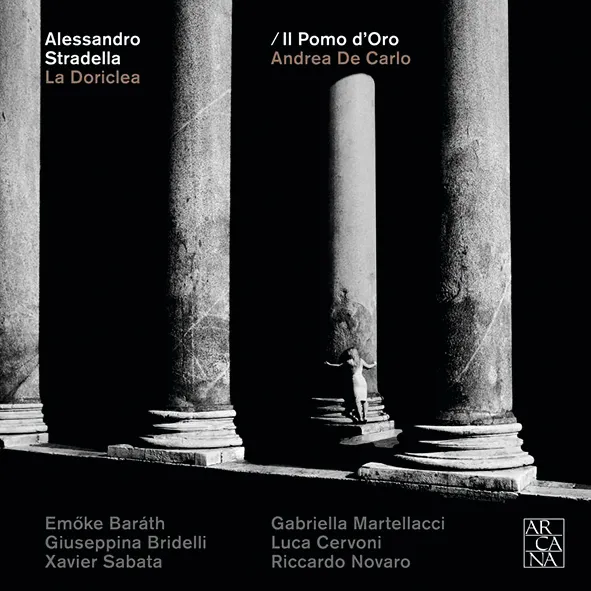
Stradella La Doriclea Emőke Baráth, Giuseppina Bridelli, Xavier Sabata, Gabriella Martellacci, Luca Cervoni, Riccardo Novaro; Il Pomo d’Oro/Andrea De Carlo Outhere A454 188:21 mins (3 discs)
‘Of all of Stradella’s operas, La Doriclea is definitely the least known,’ writes Arnaldo Morelli in a magnificent understatement in the booklet essay. We can only be grateful to Andrea de Carlo and Il Pomo d’Oro that we are now better acquainted with this 17th-century story of lovers’ jealousy, their betrayals and mistaken identities which has a distinctly modern feel about it. In Doriclea we have a heroine who is determined to marry the man she loves rather than the husband her father has chosen for her, and a pair of older lovers, Giraldo and Delfina, who are thoroughly realistic about the perils and pitfalls of the amorous life. This is in marked contrast to Doriclea and her Fidalbo and the other young lovers Lucinda and Celindo. It is a tale of courtly love with a sting in its tail, which maybe even mocks the aristocratic airs and graces of its intended audience. Stradella’s sliding harmonies and ear for a heartfelt lament puncture the lovers’ pretensions and hint at real feelings even if the story flags a tad in the second act.
What saves the day is an exquisite duet at the beginning of Act III for Lucinda (Giuseppina Bridelli) and Doriclea, who is now disguised as Lindoro. Emőke Baráth is a feisty Doriclea and nowhere more so than in her encounter with Xavier Sabata’s Fidalbo in Act II. But it’s Gabriella Martellaci’s rich contralto as the worldly-wise Delfina that lingers on the ear, and the magnificent music-making from Il Pomo d’Oro.
Christopher Cook
